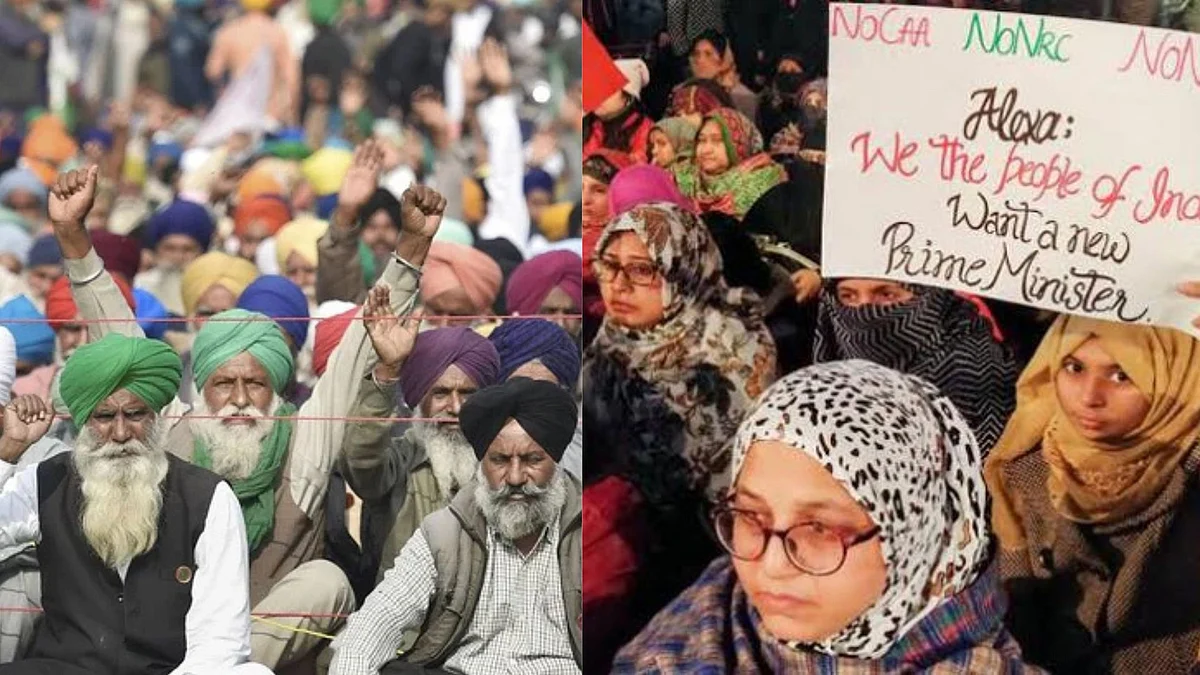
Politics of Divide: The Peril of Labelling Fellow Citizens as 'Pakistanis'
Recently, a young minister from Maharashtra brazenly referenced Kerala as 'Mini Pakistan'.

advertisement
Regrettably in recent times, 'othering' amongst our own has been perfected to a fine art.
Politicians have invoked this latent human tendency to polarise and divide societies with strains of ethnocentrism, majoritarianism, or xenophobic aspersions, especially onto the vulnerable minorities. The accompanying 'us-versus-them' narrative hides behind the garb of claimed nationalism, hence the so-called 'others' can instinctively be slammed as 'anti-national'.
Once the tag of much conviction, facts, and thought – today anybody who seemingly does not agree with the dominant political narrative, runs the sure risk of being called an 'anti-national' or even 'Pakistani', without any restraints or considerations.
In some ways, these increasingly visibilised curbs on liberality, secularity, and diversity have stoked collateral bloodlust in lesser seen places like Manipur or vigilante lynchings in the hinterland of 'cow-belt' India.
The fact that those who light the fire (usually, politicians) with incendiary or unsubstantiated statements go virtually scot-free, empowers and emboldens many to continue playing with fire or even take law onto their own hands. Ultimately, politics of divide and hatemongering serving a deliberate purpose i.e. electoral purpose, hence goes on tellingly unchecked or unrestrained.
What Does This Deplorable 'Othering' Achieve?
Herein, callously calling some as 'Pakistanis' serves two vital and immediate purpose. First, it perpetuates a dangerous and deliberate stereotype that is electorally gratifying.
Secondly, due to the churlishly jingoistic politics getting normalised, it ironically builds muscular credentials for the unhinged politicians who make such outlandish aspersions.
Unsurprisingly, such blanket attributions are invariably reserved for people belonging to certain religiosities who do not compose the majority denomination – so they could be sitting in Shaheen Bagh or the farmers' protests.
Basically, if they do not agree with the views of the dispensation of the day, they are automatically made to be 'deshdrohis' ('anti-nationals'), said to be, 'on the pay rolls of Pakistan or China (new addition)', or plain simple, 'Pakistanis'!
Whereas the true soldier to the nation has a more nuanced view about the 'enemy', as it were. As GK Chesterton said, “The true soldier fights not because he hates what is in front of him, but because he loves what is behind him."
Degradation of the Political Discourse
Recently, a young minister from Maharashtra, who had taken the oath to uphold the unity and integrity of India, joined the chorus of 'Pakistan' when he brazenly referenced Kerala (a political state with the highest literacy in the country) as 'Mini Pakistan'.
The playbook of 'othering' his political rivals was neatly conflated by the 'othering' of a certain religious community (addressing them collectively and shockingly as 'terrorists') by insisting, “All terrorists vote for them. This is the truth; you can verify it. They became MPs by aligning with terrorists”.
Not new to inelegant controversies, this was a new low in 'othering' by the said constitutional appointee, and expectedly and sadly, it has gone unpunished.
Counterintuitively, the exclusionary, illiberal, and intolerant idea besetting 'Pakistan' matches exactly the spirit and tenor of the young minister’s diatribe more than anyone else’s.
Perhaps a crash course in history will inform him that the lofty 'Idea of India' (as enshrined by those who actually fought for Independence, including the likes of Netaji Subhash Chandra Bose, Sardar Patel, Bhimrao Ambedkar, among many others) was all for “unity in diversity”.
The legal and constitutional act of defining someone as an 'anti-national' person is not predicated on his or her religion, but by their conduct and action. It should not matter if a wrongdoer is a Muslim, Christian, Sikh, Buddhist or a Hindu, as there are enough heroes and villains from each religious faith who have either given their blood for the nation, or had taken its blood – the idea of a superior race or religion is what insufficiently made Pakistan, and not, India.
But in oversimplistic and 'manufacture emotions' of the times that be, those from the increasingly slammed minorities who chose to repose faith in the 'Idea of India' (and therefore shunned Pakistan) in the aftermath of Independence, run the ready risk of getting called 'Pakistanis' today, whereas those actually forsook the option of moving to India (belonging to the 'minority' community in Pakistan, but not so in India) are not slammed as 'others', within India.
This is conveniently communal politics of today. Indeed, economic considerations and riots perhaps dissuaded many from crossing over borders even if they felt they wanted to shift to the other side – but that logic works on both sides, not just on one side of the Line of Control.
(The author is a Former Lt Governor of Andaman & Nicobar Islands and Puducherry. This is an opinion piece and the views expressed above are the author’s own. The Quint neither endorses nor is responsible for the same.)
- Access to all paywalled content on site
- Ad-free experience across The Quint
- Early previews of our Special Projects
Published: undefined